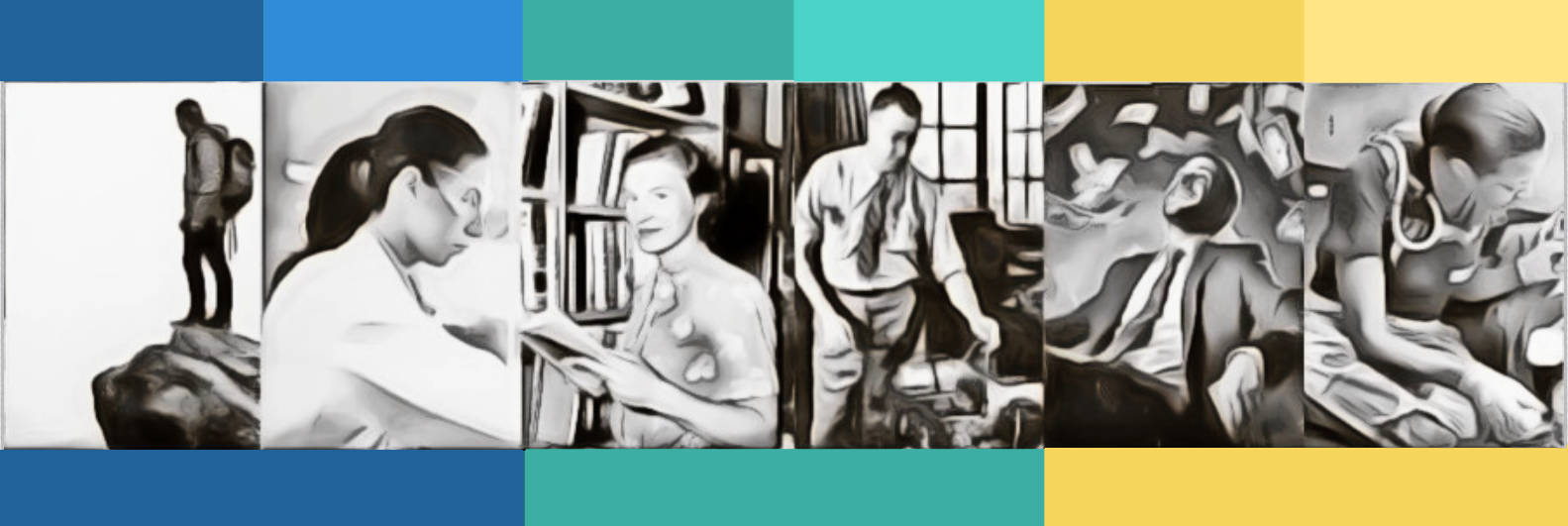Who doesn't love a good type test?
Jungian typology (which inspired MBTI, Socionics, and others) has been a long-time fascination of mine.
Even though my research into Carl Jung's functions
led me into a minefield of contradictions and mysticism (more on that sometime later),
it also led me to many exceptionally useful insights.
So, I made my own personality typing system in an effort to stay objective (it also happens to generate an MBTI type, which I linked to the typeinmind.com website for contrast).
Please keep in mind that these tests are far from conclusive.
But they can still provide a great starting point for finding common biases shared by individuals with similar preferences.
When answering the following questions, be sure to focus on what sounds more exciting, satisfying, or gratifying, not necessarily more socially appropriate.
And, you can mouse-over or click the blue text for extra explanations
1) While having casual and only mildly interesting discussions, how easily and consistently do you stay focused on every word others say, versus being
deep in thought?
Always paying attention
Often focused elsewhere
2) While traveling on a very comfortable and familiar path
in silence, how likely are you to begin to
autopilot or daydream?
I'm focused on my surroundings
I'm almost always daydreaming
3) How often do you
actively focus on actions and behaviors
that will either help you "fit-in" socially
or conform to social norms within your social groups?
4) How often and/or how strongly do you
feel discomfort
that you or someone you care about is being unreasonably or unfairly judged,
possibly wondering why people won't just accept them for who they are?
5) During an interesting conversation,
how likely are you to make a brainstorming-like suggestion or otherwise
verbally process
some element of the conversation?
Never
I think and dream out loud
6) How often are you
unaware of a physical need
until your body is screaming for relief? (bathroom, hungry, tired, cold, etc.)
Very conscious of bodily needs
Often unaware until it's bad
7) When following a familiar process or recipe,
how likely are you to modify the process, hoping to either improve the end result and/or make the process more efficient?
Follow what's known
Compelled to modify/improve
8) When presented with tasks or duties at home or at work,
which would be more frustrating to you:
-
Micromanagers
and a lack of creative freedom for problem-solving
- Inadequate guidance and a lack of clear and simple instructions
a I need freedom
b I need guidance
9) Which of the following work environments sounds more interesting or exciting?
- Stuck behind a desk but with many new interesting social interactions.
-
Traveling
through many new beautiful areas but with only a very few business focused social interactions.
10) If you felt like being a bit crazy in a friendly social setting (to release stress or cope with boredom),
which type of crazy are you more likely to be?
- Physically reckless-experimental (like dangerous sports, driving fast, listenting to loud music, and playfully hitting/slapping/drumming)
- Socially chaotic-experimental (like being zany, playfully annoying people, practical jokes, and being overly dramatic)
11) When quantifying your own success, which details seem to matter most to you?
Or, in other words, which details and factors are most gratifying to you?
- More impersonal and measurable details (like improvement, efficiency, or precision)
- More personal and reputation-based factors (like respect, loyalty, and trust earned)
